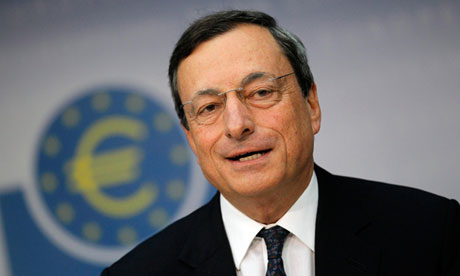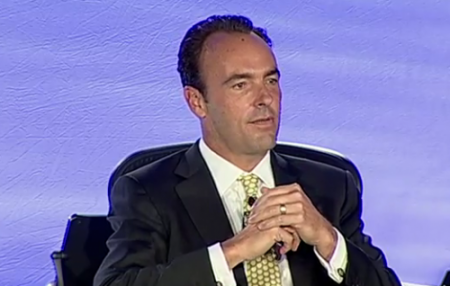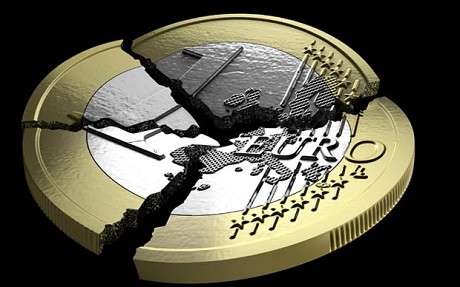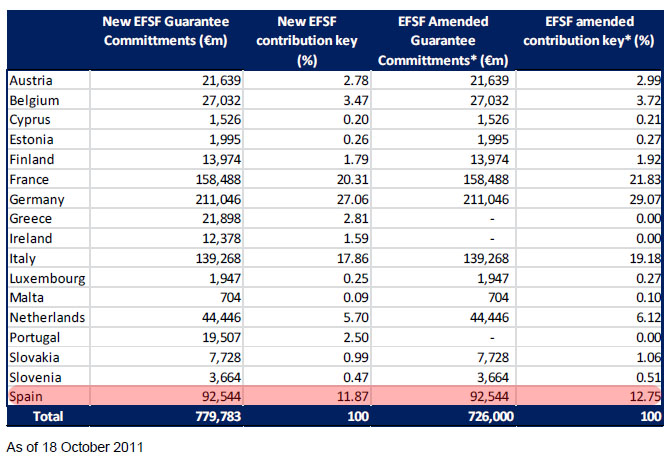Commentary:
In case some of you still think that politicians and central banksters won’t lie to you:
Flashback: Quotes from the Great Depression
In other news:
– Financial Markets Cheer The Death Of The Bundesbank (Welt, Sep 6, 2012) – Bundesbank Text: Weidmann Reiterated Bond-Buy Criticism
– Hyper Mario Draghi: ‘Euro Is Irreversible’ – ECB Announces Sweeping Program For Buying Bonds, Giving The Bank Potentially Unprecedented Power
– The ESM Violates The Law And EU Treaties (Welt, Sep 4, 2012)
War Is Peace!
… and …
Printing Money (QE) Is Saving The Euro!
Quantitative easing (QE) = printing money = creating money out of thin air = increasing the money supply = inflation = hidden tax on monetary assets = theft!
The ECB will just delay the coming (necessary) collapse for a while. This will be EXTREMELY beneficial for the elitists and the banksters …
… and the middle class and the poor will be totally and utterly destroyed:
“When a country embarks on deficit financing and inflationism you wipe out the middle class and wealth is transferred from the middle class and the poor to the rich.”
– Ron Paul
Here is, AGAIN, where elite puppet Draghi is coming from:
– Mario Draghi (Wikipedia):
Draghi was then vice chairman and managing director of Goldman Sachs International and a member of the firm-wide management committee (2002–2005). A controversy existed on his duties while employed at Goldman Sachs. Pascal Canfin (MEP) asserted Draghi was involved in swaps for European governments, namely Greece, trying to disguise their countries’ economic status.
The ECB will have to monetize TRILLIONS of bad debt!!!

Got physical gold, silver and a remote farm (food, water, etc.)?
Central bank governor Mario Draghi overcomes Germany’s fears over inflation to announce new intervention in debt markets

ECB president Mario Draghi was careful to address German objections in his presentation of the unlimited bond-buying policy. Photograph: Alex Domanski/Reuters
– ECB introduces unlimited bond-buying in boldest attempt yet to end euro crisis (Guardian, Sep 6, 2012):
The European Central Bank (ECB) unveiled its boldest attempt yet to stabilise the battered single currency on Thursday when its president, Mario Draghi, announced a new programme of open-ended, unlimited buying of distressed government bonds.
The scheme is aimed at depressing the costs of borrowing for Spain and Italy and countering the risks of a fragmentation of the eurozone and the unravelling of the single currency.
But Draghi also set strict terms for triggering the bond-buying programme, putting pressure on the eurozone’s political leaders to request help, enter austerity programmes, and agree on direct bailouts for struggling governments before the ECB will act.
Draghi brushed aside strong resistance from Germany’s powerful Bundesbank, which lodged the only vote against the new policy in the ECB’s 23-strong governing council, to come good on his pledge in London six weeks ago that the central bank would do “whatever it takes” to save the euro.
Read moreECB’s Hyper Mario Introduces Unlimited Bond-Buying In Boldest Attempt Yet To End Euro Crisis







